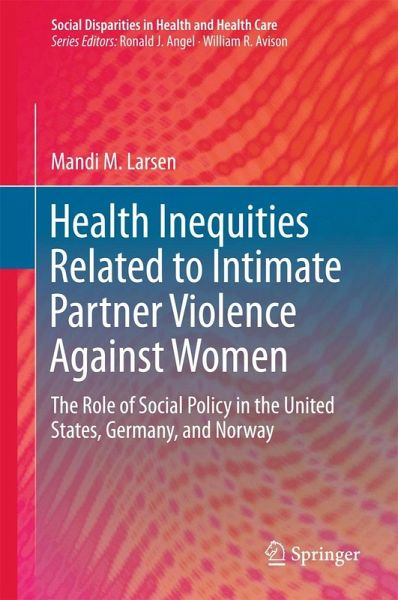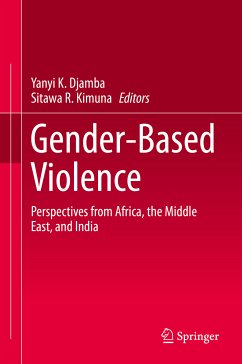
Health Inequities Related to Intimate Partner Violence Against Women (eBook, PDF)
The Role of Social Policy in the United States, Germany, and Norway
Versandkostenfrei!
Sofort per Download lieferbar
40,95 €
inkl. MwSt.
Weitere Ausgaben:

PAYBACK Punkte
20 °P sammeln!
This book examines the extent to which social position impacts exposure to intimate partner violence (IPV) and whether women with IPV exposure are more vulnerable to social inequities in health. At the intersection of sociological theories on health, gender, and policy, this book explores these issues against the social policy contexts of the United States, Germany, and Norway. It applies a conceptual framework which argues that differential exposure to IPV and differential vulnerability to poor health are two primary mechanisms driving health inequities for IPV survivors. Empirical analysis r...
This book examines the extent to which social position impacts exposure to intimate partner violence (IPV) and whether women with IPV exposure are more vulnerable to social inequities in health. At the intersection of sociological theories on health, gender, and policy, this book explores these issues against the social policy contexts of the United States, Germany, and Norway. It applies a conceptual framework which argues that differential exposure to IPV and differential vulnerability to poor health are two primary mechanisms driving health inequities for IPV survivors. Empirical analysis reveals context-specific nuances in the interactions of social position and IPV exposure in their impact on health, and suggests that encouraging women's economic independence and ensuring access to health care are vital policy intervention points for reducing the health inequities of IPV survivors. This book offers a cross-national comparative look at the role of social policy in the lives of IPVsurvivors, highlighting the effects of various policy approaches in three modern welfare states and suggesting policy implications.
Dieser Download kann aus rechtlichen Gründen nur mit Rechnungsadresse in A, B, BG, CY, CZ, D, DK, EW, E, FIN, F, GR, HR, H, IRL, I, LT, L, LR, M, NL, PL, P, R, S, SLO, SK ausgeliefert werden.












